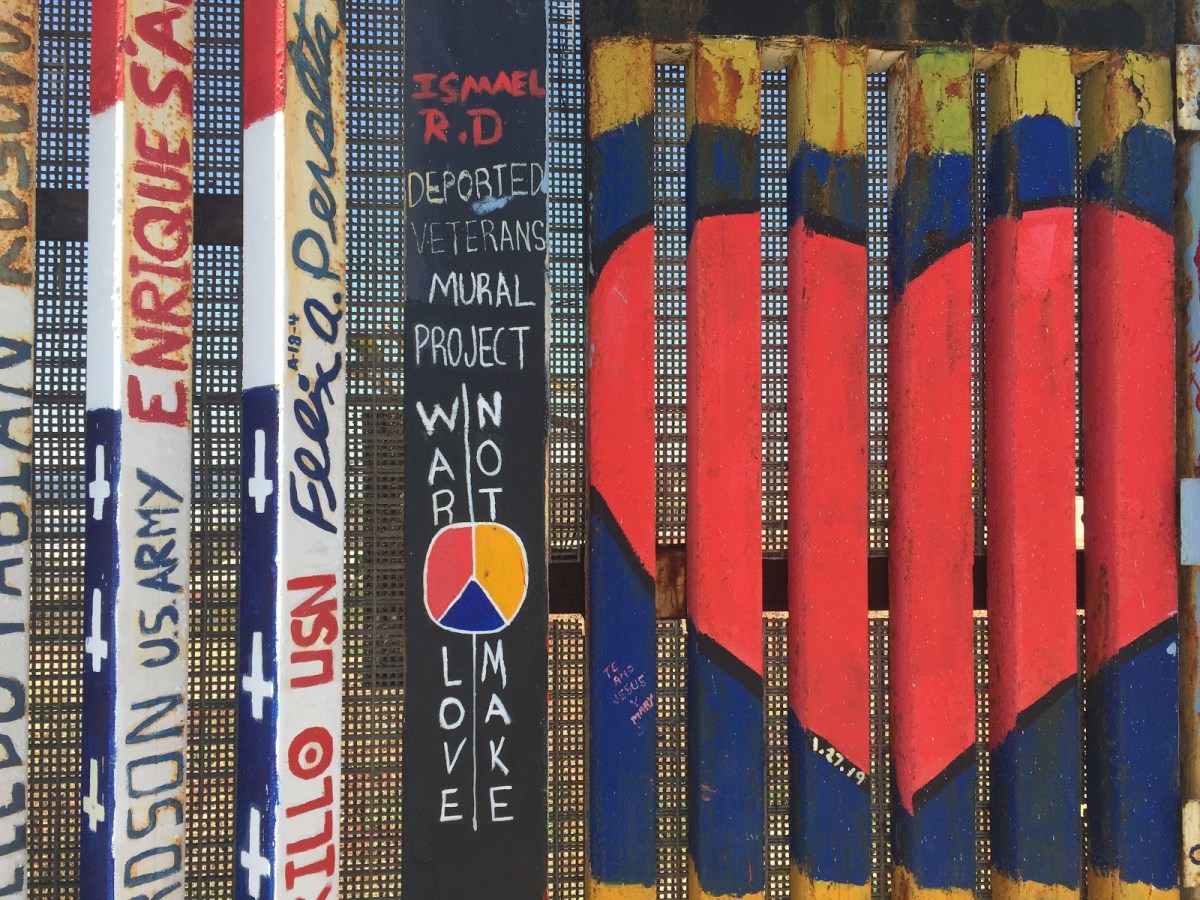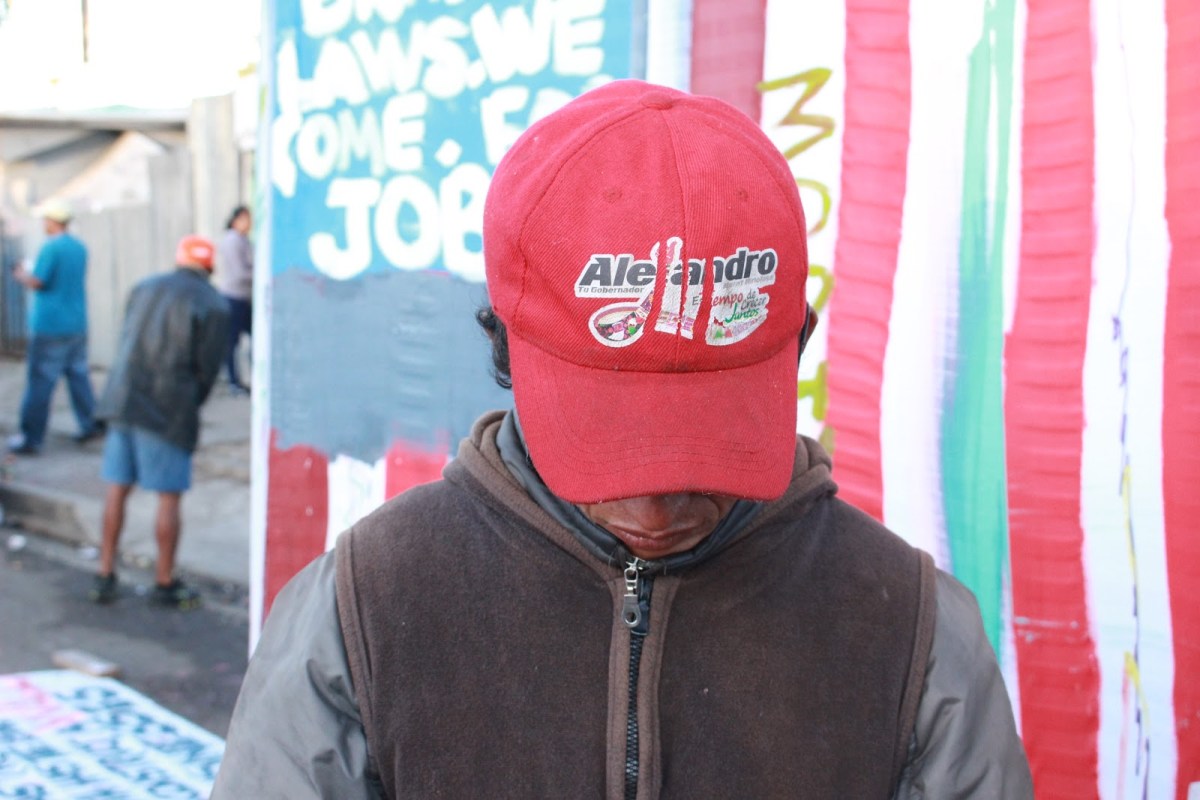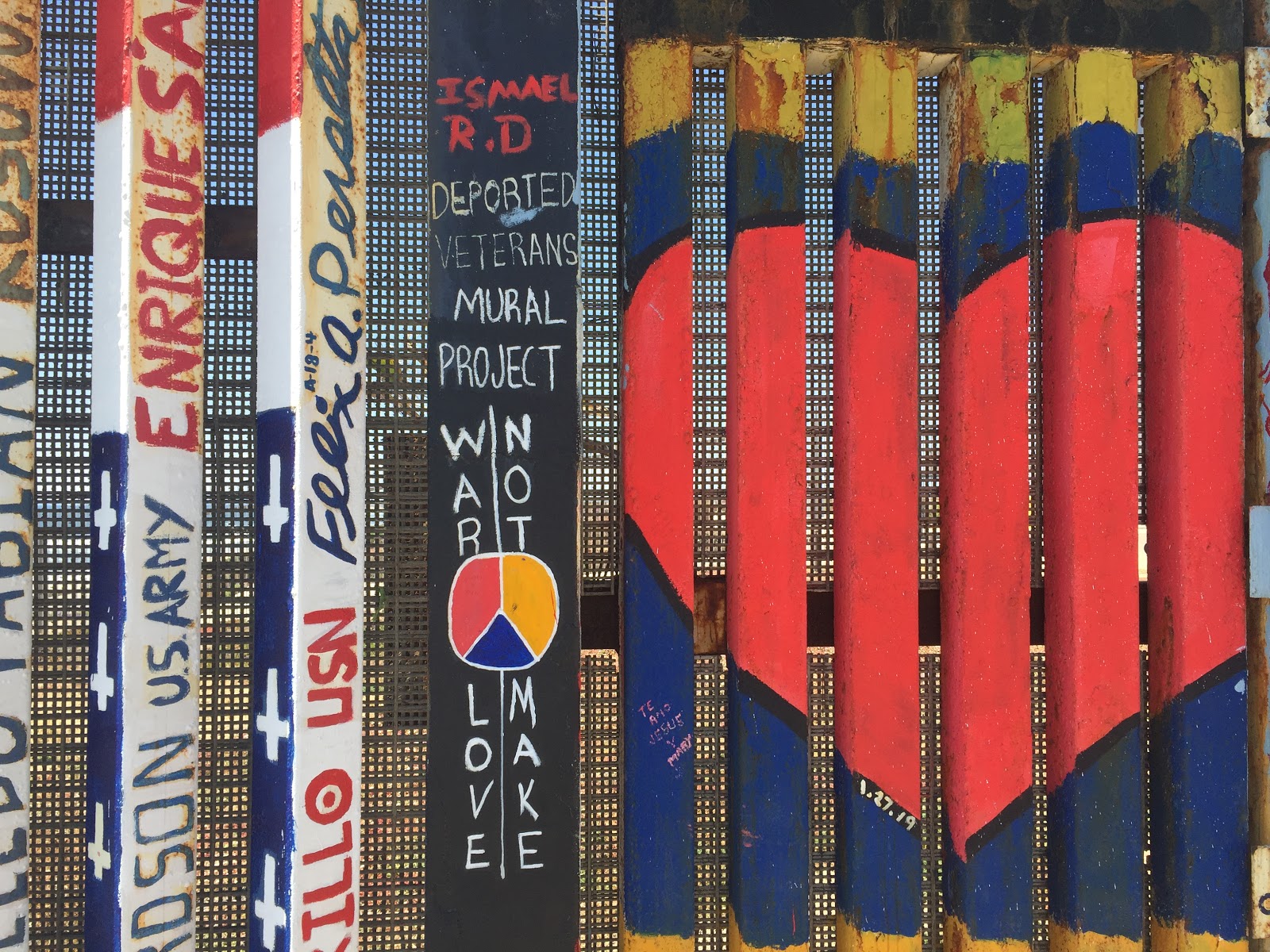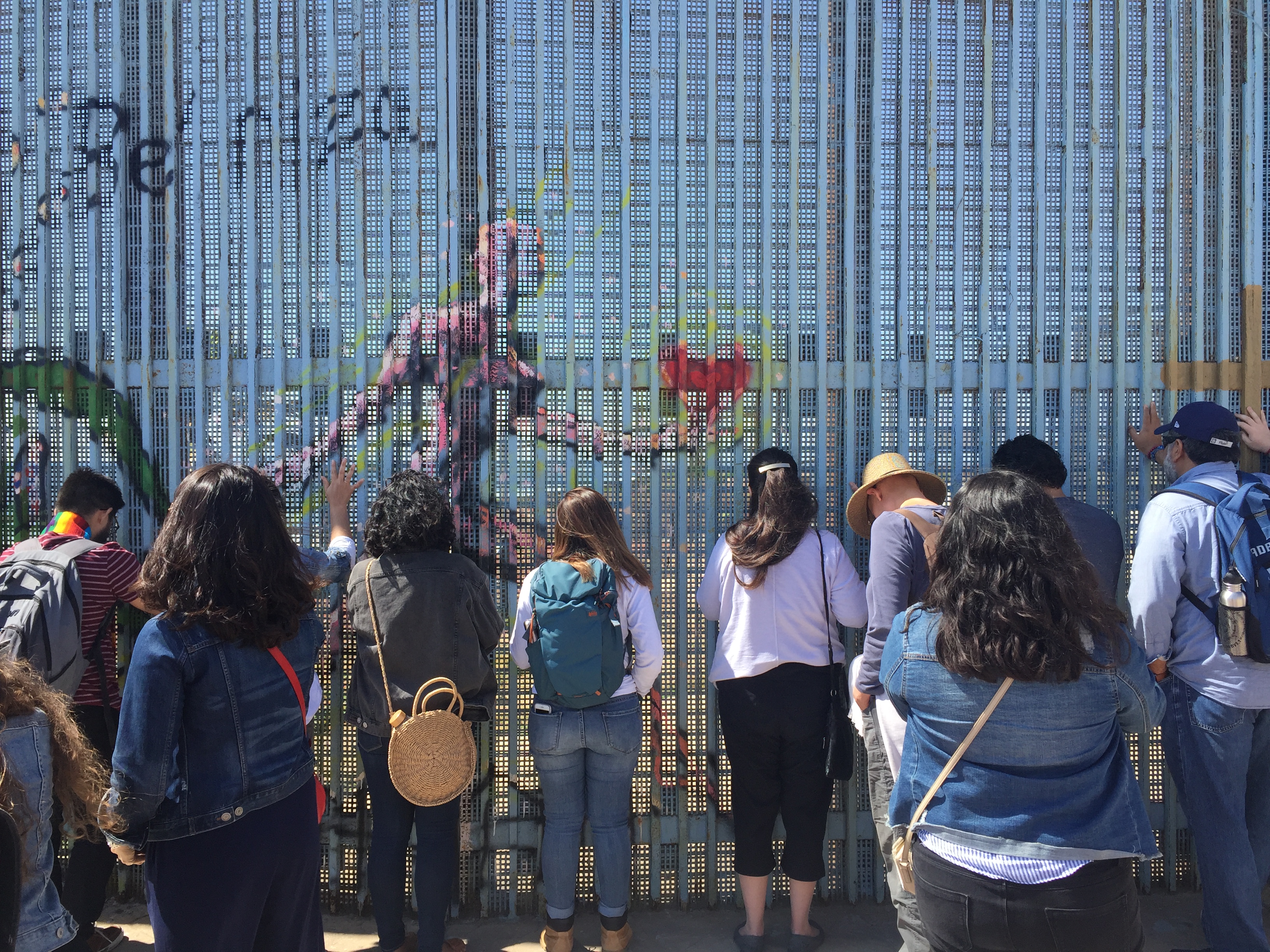
Bonus Episode: Border Response
They fled some of the world’s worst violence. Their future is uncertain. How can you stand in the gap for asylum seekers?
This bonus episode features Preemptive Love’s programs manager Jennifer Meyerson and donor relations coordinator Matt Malcom, discussing Preemptive Love’s time-sensitive response to what’s happening at the border.
Share this episode
Show Notes

They fled some of the world’s worst violence. Their future is uncertain. How can you stand in the gap for asylum seekers at the border?
This special bonus episode of Love Anyway features behind-the-scenes staff calls with Preemptive Love’s programs manager Jennifer Meyerson and donor relations coordinator Matt Malcom, discussing Preemptive Love’s time-sensitive response to what’s happening at the border between Mexico and the US. You’ll also hear from Kayla Craig, who breaks down complicated ideas about asylum seekers at the border.
We’re rushing 10,000 emergency backpacks with essential supplies. We’re partnering with local friends who’ve been serving families at the border—their resources are critically low, and more families are coming.

While others wage partisan wars, we can be the people who love anyway.
It costs about $40 to provide a backpack filled with essential supplies for one refugee asylum seeker. You can donate to provide a backpack—or sign up to assemble your own and ship them to our warehouse in El Paso.
Don’t miss an episode. Subscribe now on apps like Apple Podcasts, Google Podcasts, and Spotify.
Featured music on this episode was provided by Sleeping at Last.
Additional Resources
Border Response Packing List
Here’s a short guide to help you learn more about this crisis and how we can involve our families, friends, and neighbors, too.
Full Transcript
Jen: For me, I’ve just really been thinking about what is it to love anyway, in this situation, and, and I think it is to show up in an over-politicized situation, because they are human.
MUSIC
Erin: Hundreds of legal asylum seekers are arriving at the US border in El Paso every week, fleeing for their lives. As you heard on episode 4 of season 1, The Border Wall, these families are on the run from extreme violence and poverty. Many arrive with nothing. Not even the most basic necessities. The local community in El Paso has exhausted itself caring for these families for months. Resources are stretched to the breaking point, and more families arrive each day.
MUSIC
Erin: What should our response be? We’re tackling that question on this special bonus episode of Love Anyway. I’m Erin Wilson, host of the podcast and Preemptive Love’s senior field editor in Iraq.
MUSIC
Erin: Season one has wrapped, but because of the urgency of this situation, we’re releasing this special bonus episode to talk about what’s happening on the border and how we can respond.
Here’s podcast producer Kayla Craig.
Kayla: We’ve been following the situation on the US-Mexico border for some time. Listening, learning—but also, quietly showing up next to local friends who’ve been serving families here since long before this crisis made the news every day.
But the border is…complicated. There are endless debates over how to protect it, who to let across it, and what to do with the current wave of asylum seekers trying to get in.
News Clip: Authorities in Mexico have been struggling to accommodate the thousands of people awaiting entry into the U.S., after fleeing violence and unrest in Central America.
Kayla: The border doesn’t just divide Mexico from America. It divides Americans from each other. Border security is one of the most polarizing issues of our day. And while debates over immigration are nothing new, the current crisis is different from what we’ve seen in the past.
Matt: Overall numbers are at a record low, year over year, I think that this month was a little bit higher than last month.
Kayla: That’s Matt Malcom. You might remember Matt from episode 4, “The Border.” Matt has traveled to the frontlines of the border crisis in both Tijuana, Mexico—on the Pacific coast—and, more recently, to El Paso, Texas.
Matt: What is significant, though, is that family units, family units are coming over at record numbers.
Kayla: So what that means is, while illegal border crossings have actually fallen since the year 2000, the number of families showing up at the border has gone way up. And that’s a problem.
Matt: Our process for taking people in, who—whether they’re seeking asylum or attempting to immigrate, or even if they cross illegally—the entire system in the US is based off the assumption that these are going to be individual men specifically trying to do this.
Kayla: The entire system. From how they are processed… to how they are detained.
Most families seeking asylum at the US-Mexico border come from the Northern Triangle region of Central America. Guatemala, Honduras, and El Salvador. This is—one of the most violent regions of the planet not in an active state of war. Many of these families are trying to escape gang violence. And what some of them go through just to get here? It’s unimaginable.
Jen: A common practice among the girls who were running from gang violence, is that they would travel alone, because they would have a better chance of, um, traveling by themselves than with a male or with a family member.
Kayla: Jen Meyerson is one of our program managers at Preemptive Love. She’s helped organize emergency responses for refugees in Syria and, now, for asylum seekers on the US border.
Jen: Before they left, there would be these places in their home countries that would give them a contraceptive injection, before their journey. And they would be told: “You will be raped, and don’t find back.” And this injection would help them not get pregnant.
[pause]
And being raped and receiving asylum would be better than staying. However, now when these girls are arriving at the border, they’re being turned away, due to changes in policy, and they simply just can’t keep up with, with our laws and our change in policy. And it’s a lot to understand.
Kayla: Asylum seekers have no guarantee of being allowed into the US, much less being allowed to settle here. In recent months, the government has employed a metering system, requiring families to wait on the Mexico side of the border until their number is called.
Some days, only a handful of numbers are called. These are legal asylum seekers, caught between violence at home and uncertainty ahead.
And the epicenter of this crisis is El Paso, Texas.
Jen: El Paso is said to have better transition centers and better immigration lawyers. So people are still going to Tijuana and other parts of the US border. But migration has significantly decreased in the outside areas, as many are being directed to El Paso.
MUSIC
Matt: Regardless of how they end up in the El Paso sector, Border Patrol detention facility, once they’re processed, they’re handed over to ICE. And that, that’s another 48 hour to 72 hour process, depending on when, when they get to the ICE facility.
Kayla: So Once a family is allowed to present themselves for asylum, they’re transferred to US Immigrations and Customs Enforcement, also known as ICE. These families are kept in detention centers that were meant to accommodate adult males, waiting while officials determine whether they have a credible claim to asylum and whether they pose a criminal threat. Here’s Matt again.
Matt: Treatment in the ICE facilities has been reported to us is there’s not enough space to lie down at night, there are no windows, the lights on 24/7. It’s kept at, like, just like, super cold, like 60 degrees with no blankets. Or just like like a space blanket, it’s like this foil. It’s really loud. Their shoelaces and their belts are taken. They’re not given back. Non-prescription medication. Even if you have a prescription, but if you don’t have proof, the prescription is taken, and not given back.
And then once you’re with ICE, and you go through the experience I just described, you are released, without context, without further guidance, with a stack of paperwork that you don’t know how to read. And at best, the thing I saw at one time was, somebody that, from what I could, tell was released directly from ICE—and it was a piece of paper that said, “I don’t speak English, tell me what bus to get on.”
Kayla: It’s at this desperate point in their journey that we are stepping in.
MUSIC
Kayla: So when an asylum-seeking family is released into the US—which means government officials believe they could be granted asylum and that they do not pose a criminal threat—they are sent to stay with a sponsor family who takes care of them while they wait for their case to be heard. Sponsors are usually extended relatives or host families who volunteer to house asylum seekers.
All the adults are electronically monitored. They cannot receive public assistance.
But there is often a 2-3 day gap between the time they are released and the time they reach their temporary home—which is often hundreds of miles away. And Remember, they have almost nothing. They might have spent their savings just trying to get here. Their possessions may have been stolen along the way or confiscated while in detention.
This is the gap where we are choosing to stand.
We hope to provide up to 10,000 emergency backpacks filled with critical supplies for those who left everything they have in search of safety. Each backpack is filled with reusable water bottles, non-perishable food, socks, underwear, toothbrushes, toothpaste, deodorant, baby wipes, children’s toys, and more.
Each pack is a lifeline, to help someone get through their first and most harrowing days in a new and unfamiliar place. Many of us know how overwhelming it can be to set foot in another country for the first time. Imagine doing so with almost nothing.
[pause]
But the border is… complicated. And the question is whether our love is bigger than what is tearing us apart.
Whether it’s possible to care about border security and the well-being of asylum seekers.
Whether it’s possible for Republicans and Democrats, liberals and conservatives, and people of all stripes and ideologies to show up for those in need.
Again, here’s Jen Meyerson.
Jen: I’ve just been really thinking about what is—what is justice? Is it simply giving what someone deserves? Because if so, like, I’m going to give them what they deserve, they’re going to give me what I deserve. And it’s just going to be this, like, cyclical pattern.
And then who determines what someone deserves? Is it the world powers? Is it those who are considered privileged? Am I the one who’s defining, you know, who is worthy of mercy based on my, on my fear, or what I understand of a situation?
MUSIC
Jen: Someone once told me when I was younger, that your words and your actions—or the lack thereof—impact humanity. And I think so far in my career, I put a lot of emphasis on my words and actions, but I kind of forget about the lack thereof, or the things that have chosen not to do, and how that plays a part in ending war. So I’m excited about this El Paso project, because I think it could be easily something that we don’t do. I think it could, like, fall into the lack thereof.
And because there are not bombs in Honduras, they’re not running from, like, the worldwide threat of ISIS, but they’re running from the threat of violence. And since our words and actions—or the lack thereof—impact humanity, for me, I’ve just really been thinking about what is it to love anyway, in this situation. And I think it is to show up in an over-politicized situation, because they are human.
MUSIC
Erin: So what can we do? What we’ve always done. Show up for those fleeing for their lives. We’re stepping into the gap, joining with local friends here in El Paso to provide emergency backpacks for 10,000 asylum seekers.
We’re asking you to help in one of two ways:
1) Donate $40 to provide one backpack.
2) Pack your own backpacks with your friends and get them in the mail by Friday, June 13th.
On preemptivelove.org/podcast, you can find a packing list with instructions.
We can be the people who love anyway for our friends on the US-Mexico border.
Join us at preemptivelove.org/podcast for the show notes for this episode, where you can read a transcript of this bonus episode, watch a special video from founder Jeremy Courtney, and learn with Diana Oestreich, Preemptive Love’s key relationship officer, as she and her kids pack a bag for children reaching the border. You can also download an exclusive step-by-step guide filled with resources, including FAQs and ways to talk to kids about the border.
And, we recommend going back and listening to Episode 4, the Border Wall, where you can hear, in their own words, stories from real families on the border.
MUSIC
While others wage partisan wars, we can be the people who love anyway.
Thanks for listening to this special bonus episode of Love Anyway. Until next time, I’m Erin Wilson.
MUSIC


